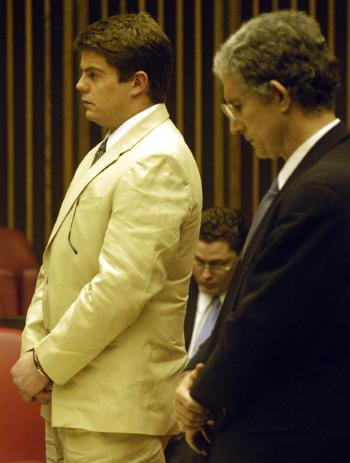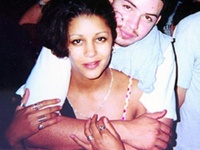Harvard is no stranger to the media spotlight.
Visiting world leaders, renowned scholars and talented students frequently draw the nation’s attention to Cambridge.
But this spring, flashing cameras and probing reporters converged on the University because of a much darker story—a gruesome murder allegedly involving one such star student.
Alexander Pring-Wilson, a graduate student in Harvard’s Davis Center for Russian and Eurasian Studies, was arrested and jailed for allegedly stabbing to death 18-year-old Cambridge resident Michael D. Colono.
The crime—and the Harvard connection—has attracted major media outlets such as the Los Angeles Times, the Boston Globe and Court TV.
“Harvard has panache about it. It’s a little larger than life. And whenever you have larger than life, you get larger than life stories. And it takes on an almost whimsically mythical [quality],” says Pring-Wilson’s attorney Jeffrey A. Denner, who frequently defends Boston-area college students.
High-profile crimes involving members of the Harvard community are hardly a new phenomenon, and the Pring-Wilson case is not the only case to draw unfavorable attention to the University this year.
Two rugby players were arrested for streaking in highbrow Greenwich, Conn., in early May, and a member of the Harvard crew team was allegedly attacked by two Northeastern rowers in February.
Two separate rashes of juvenile crime this year also drew the attention of the University community and Cambridge.
But despite what the media spotlight might indicate to outside observers, both Harvard and Cambridge police officials say campus crime rates have remained stable.
Additionally, the Yale Law School bombing drew attention to the vulnerability of universities to attack—and the worldwide outbreak of severe acute respiratory syndrome (SARS) sent Harvard officials scrambling to keep the disease off campus.
But Harvard’s Incident Support Team (IST)—formed in the wake of Sept. 11—has yet to face the kind of major campus emergency for which they are constantly preparing.
So while the fallabilities of the University and its students have figured prominently in the headlines—the perception such media coverage has created belies the reality of a relatively quiet year in crime at Harvard.
Charged With Murder
The Pring-Wilson case is by far the most prominent of the crimes in which Harvard students have been implicated this year.
Read more in News
Pataki: 'Yale is Going to Crush Harvard'














